- Home
- Roy J. Snell
The Red Lure Page 2
The Red Lure Read online
Page 2
CHAPTER II SUDDEN CATASTROPHE
As if loath to disturb the perfect silence of a night, dawn lingers inthe tropical jungle. Off somewhere in the distance a wild parrot screams;nearer at hand a long tailed tropical black-bird begins for thethousandth time to practice the song he will never learn. Swinging fromlimb to limb, a monkey chatters at a snake. Faint and from far away, likea young puppy calling for his breakfast, an alligator barks. Trunks oftrees, gray bulks of cabins, green clusters of ferns take shape and then,with a sudden burst of light, day arrives.
The sound that awakened Johnny Thompson to dull reality of a haplessyesterday was the braying of a burro. He had remained seated on his benchall night. At first he had not dared to sleep. At last, overcome byfatigue, he had fallen asleep.
At first, only half awake, he imagined himself in Belize. Burros werecommon enough there.
"No," he declared, shaking himself, "I am not in Belize. This is thejungle. There are no burros. I was dreaming."
Leaping to his feet, he shook himself free of the last vestige of sleep.
As if to deny his last assertion, there struck his ears, clear anddefiant, a loud, laughing "He-haw!"
"Well, I'll be a donkey myself!" he exclaimed, turning and racing downthe path that led to the creek. The sound appeared to come from there.
When he had covered two-thirds of the distance, he paused inastonishment. Before him in the path was the skinniest, boniest, mostdilapidated and dejected specimen of animal kind it had ever been hisprivilege to meet. Yet, it was unmistakably a burro.
At that moment, as if to proclaim his species, the creature stuck hisnose in the air and brayed once again.
In spite of his great dilemma, Johnny sat down on a fallen mahogany treetrunk and rocked with laughter.
"Well now," he exclaimed, his fit of laughter over, "where did you comefrom, and how? Did you walk or swim, or both?"
Without an attempt at an answer, the creature paused in the path, hunghis head and put on such a droll and mournful look as set the boy offinto another fit of laughter.
Johnny was once more regaining control of himself when he caught a yellowgleam through the branches. The next moment a huge bunch of bananasappeared, and beneath them was Pant.
"Johnny, meet my new friend Rip Van Winkle," smiled Pant. "Call him Ripfor short. He's just slept twenty years down there by a deserted cabin. Iwoke him up and brought him along."
"What a pity! Why didn't you let him sleep?" grinned Johnny.
"Why should I? He was bound to wake up sooner or later. He'd beenlonesome if there'd been no one around.
"But honest, Johnny," Pant's tone became serious, "what would you thinkof a native who would leave a poor old fellow like that to starve!"
"I'd think he was a pig of a dog. But how much better can we do? What'llwe feed him on? Bananas?"
"Easy. There's a tree up here that raises grass on its branches insteadof leaves--bread-nut tree, they call it. I saw one up the river two daysago. Burros and cattle get fat on it. We'll get a native to climb a fewtrees and gather a ton of this hay."
"Natives?" said Johnny slowly. "That reminds me--there aren't any."
"What!" exclaimed Pant, setting down his bananas so suddenly that many ofthem broke from the stem.
"Skipped. Vamoosed. All gone." Johnny threw out his arms in a widegesture.
"No!"
"Yes, I tell you."
"Why?"
Johnny shrugged his shoulders. "You tell me. All I know is they're gone.They told us in New Orleans that this red lure was a hoodoo. They told usthe same thing in Belize. Maybe it is. Who knows?"
"It isn't!" Pant sprang to his feet. "We'll go to Belize and get anothercrew!"
"And if they leave us?"
"There are a thousand men in Belize."
"Pant," said Johnny slowly, "I think one of them tried to kill me. I--Ithink it was Petillo."
Johnny seated himself on a log and told of his night's experiences, fromhis narrow escape on the bank and in the river to his discovery of themysterious Spanish girl in the trail.
"What do you make of it?" he asked at the end.
"Don't make much."
"Of course, there's that man-eating jaguar they've been talking about.They may have run away because they were afraid. They may have--"
"But what of that fellow down by the river!" exclaimed Pant. "No! I tellyou what, Johnny, someone is plotting against us, someone with money andpower. We'll not spend a night here alone. We'll get right back toBelize. And we must not come back unless we find a real, fearless crew."
"I'm afraid that last is a big contract."
"Maybe so. But let's hope it's not impossible."
"What'll we do with that?" said Johnny, pointing to the burro.
"Take him along in the power boat. I tell you what, Johnny, I always feellucky when I'm saving some poor dumb creature from suffering. I shouldn'twonder if Rip would do us a mighty good turn sometime."
In this Pant was more nearly right than he knew. Also, this sad-lookingquadruped was destined to be the cause of bringing him into great peril.But that was all in the future.
Pant had been down the river in a dory for bananas, cocoanuts andcasabas. As soon as they had unloaded these stores and had eaten a hastybreakfast, they turned the prow of their motor-boat downstream and wentpop-popping away.
* * * * * * * *
Belize, the city to which the boys returned, is one of matchless beauty.Built on a point of land reaching out into the sea, with its red-roofed,white-walled houses, gnarled old mahogany trees by its governor's palaceand stately royal palms at the back of the Bishop's house, bathed in thetropical sun, it is a city to dream of.
Johnny Thompson dreamed of it very little. His mind was occupied with butone thought--getting back to the red lure.
He was making his way up from the dock to the hotel when someone calledhis name. Turning, he saw Hardgrave. Hardgrave was an old man. He hailedfrom the States and had been twenty-five years in the tropics. A naturalstudent, he had learned much in that time and had already been of serviceto this boy from the land of his birth.
"Back so soon!" he asked in surprise.
"We did get back rather soon," said Johnny. "At least our crew did. Butwe're going back." He said this last in such a tone as Sheridan must haveused when he said: "Turn, boys, turn; we're going back." He had beengiven a task to do, and like any red-blooded American boy, he meant to gothrough with it.
"Want to tell me about it?" said the old man.
"I'd like to."
"Come over to the hotel yard. We'll find shade there."
So, beneath a low-spreading cocoanut palm, Johnny told his story.
"Johnny," said the old man impressively, when the boy had finished hisstory, "get up from your chair and walk over to the cooler for a drink ofwater. As you come back, without appearing interested, look at the manover there in the far corner of the veranda."
Three minutes later Johnny resumed his seat.
"See him?" the old man leaned forward eagerly.
"Saw two men; a tall, thin, dark-skinned one, and a heavy-set one."
"The thin one, a half-caste Spaniard, is the one. That's Daego."
"Daego? Who is he?"
"Is it possible you have not heard of him?" Hardgrave asked. "He's therichest, most unscrupulous man of our city. He bought you out."
"Bought us out?"
"Hired your men to quit, and to attempt killing you, like as not. He'd dothat."
"But--but why?" Johnny licked his dry lips.
"He has his eye on that red lure of yours, has had for a long time.Strange you haven't heard of him, haven't seen his boats. But then, ofcourse, they pass in the night. Black boats, they are. You don't see muchof them. You wouldn't, I'd bet on that."
Johnny wanted to ask about those boats, but he wanted still more to learnof Daego's desire for his treasure.
"You see," said Ha
rdgrave, "Daego's built up an immense fortune workingthe Rio Hondo territory. He's worked all the land up to your tract. Therehe was obliged to stop. It was owned by a man who would not sell; atleast not at his beggar's price.
"As you know, British Honduras is one side of the Rio Hondo, andQuintanaroo, a state of Mexico, on the other. Daego went across the riverand obtained concessions in Quintanaroo. He's working there now. His campcan't be a dozen miles from your own. I'm surprised that you haven't seenhis boats but of course you wouldn't. They're black, and mostly pass bynight."
The old man paused as if in thought. Then, of a sudden, he exclaimed:
"It's Caribs you want!"
"What's a Carib?" Johnny asked. "Some sort of native fruit?"
"No," smiled Hardgrave, "they're men. Real men, too. Indians. Columbuscalled them the sturdiest, most warlike men of America. They've been thatever since. They've mixed with the whites and the blacks, but they'venever lost their language nor their courage, either. They are supposed tohave been head-hunters at one time or another, though that can't beproven. They're the bravest sailors, the most daring hunters of ourcoast; the best workers, too, and if they enter into a contract they'remighty likely to go through with it. What's more, they hate Daego. He'scheated and underpaid them. There's not one that will work for him. Yes,you want Caribs.
"And son," the man leaned forward eagerly, "you're in luck for once!There's two boat loads of them over from Stann Creek now. You'd bettersee them. They'll be down at the storeroom of the Tidewater Company."
"I'll go see them," said Johnny. "What's the best time?"
"Along about sunset."
"I'll be there."
"You should."
They parted at the gate. Johnny went to the market and bought the ham ofa young peccary (wild pig) and took it to the hotel to be baked for alate supper. After that he sat for a full hour under the shade of acohune-nut tree, thinking--thinking hard about many things, of the littlebrown girl who had appeared in the path by his camp in the night, and ofDaego's dark boats that passed in the night.
Just at dusk Johnny met Hardgrave at the bridge, and together they walkedin silence toward the Tidewater storeroom.
As they approached the door they caught the sound of laughter. ToJohnny's well-trained ears there came old familiar sounds, a quickshuffle of feet, the slap-slap of leather.
"Boxing," he told himself. His pulse quickened at the thought.
Johnny Thompson, young and vigorous, belonged to that ever-increasingarmy of American boys who realize that no person can fight his best inthe battle of life unless he is physically fit. A strong swimmer, fast onhis feet and limber as a hickory limb, Johnny was not the least skillfulof boxers. So his heart was made glad by the sound that greeted his ears.
Silently he and Hardgrave entered the long low room to join the littlecompany of watchers.
The instant Johnny's eyes fell upon the dark, gleaming, strong andwell-moulded forms of the Caribs, he felt himself admiring them.
"Black faces," he told himself, "but real men."
"See that big fellow over in the corner," whispered Hardgrave, "the onewith the sprinkle of gray in his hair?"
Johnny nodded.
"That's Tivoli, the chief Carib of them all."
A half hour later Johnny Thompson found himself facing this chief andchampion of the Caribs. How had it come about? Why ask? When two devoteesof an art meet, how long a time passes before they begin displaying theirskill?
That he was facing no mean boxer, Johnny realized quite well. He had seenTivoli in a sparring match with one of his own men. Tivoli thought ofthis bout with a white boy, who could easily have walked under his arm,as something of a joke. This was shown quite plainly by the smile thatoverspread his face as he seized Johnny's hand in a friendly grasp.
As for Johnny, he had two purposes in entering the match. He wished topromote friendly relations with the Caribs and he wished to prove toTivoli that, though still a boy, he was possessed of such physicalprowess as even a grown man might respect.
So the match began. That the Caribs took more than a passing interest inthe affair was shown by the hush that fell upon the place as the firstswinging blows fanned the air. Even the river that swept by the wide openport-side door seemed strangely silent.
The shadows, cast by the single small lamp, were deceiving. Twice, instepping back from the whirling arms of his giant opponent, Johnny barelymissed a blow that, however well meant, would have sent him to a land ofwild dreams.
Though much smaller than his opponent, Johnny was quick on his feet.This, combined with the clock-like working of his trained mind, made himquite a match for the Carib.
Across the shining mahogany floor, back again, criss-cross, to right, toleft, they battled. The Carib drove the white boy into a corner. Johnnyfeinted with his left, dodged to the right, and was free.
Crouching low, Tivoli sprang square at him, but he was gone. Not so soon,however, but that he left a sting on the giant's ear.
Grinning still, Tivoli squared away for a second rush. This time heapproached more cautiously and won applause by a neatly placed blow onJohnny's left cheek.
The contestants warmed to the sport. Caribs know nothing of rounds andbreathing spells. The contest goes to the man of greatest skill andlongest endurance.
They had battled royally for ten minutes. Johnny felt the warm ring ofapproval in the cheers of the Caribs as he scored a point.
Then, swift as the wind, came the end. Since his opponent was so muchtaller than he, Johnny was often obliged to leap off the floor to so muchas score a light tap on Tivoli's chin. In the wild excitement of thecontest he had perhaps grown a trifle reckless. Intent upon winning onemore point, Johnny leaped a full foot from the floor and aimed a swiftblow at his opponent's chin. The Carib, with a sudden quick movement,bent low for a blow at his chest.
The impact of Johnny's gloved fist with the giant's chin was startlinglyquick and sure. The report was like a muffled explosion. Tivoli's handsshot out and up, then he crumpled down like an empty sack.
Johnny's head was in a whirl. An instant of time, one unfortunate movehad undone all. At least, so he thought as, throwing his gloves from hishands, he bent over the prostrate Carib.

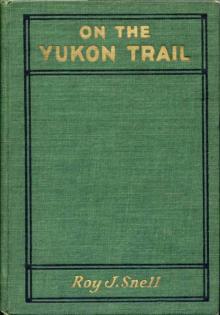 On the Yukon Trail
On the Yukon Trail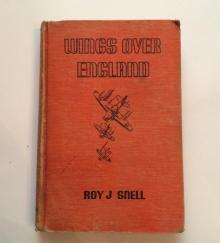 Wings over England
Wings over England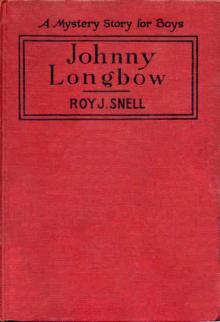 Johnny Longbow
Johnny Longbow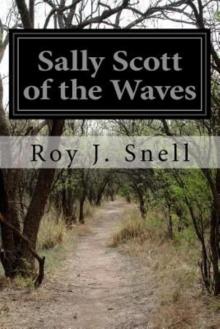 Sally Scott of the WAVES
Sally Scott of the WAVES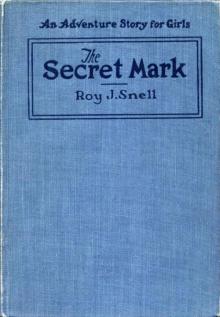 The Secret Mark
The Secret Mark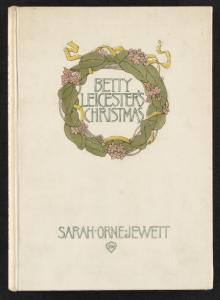 Betty Leicester's Christmas
Betty Leicester's Christmas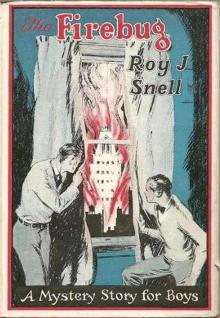 The Firebug
The Firebug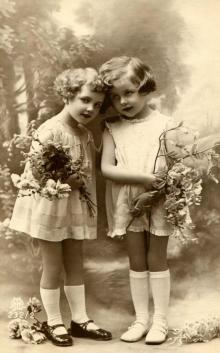 Minnie Brown; or, The Gentle Girl
Minnie Brown; or, The Gentle Girl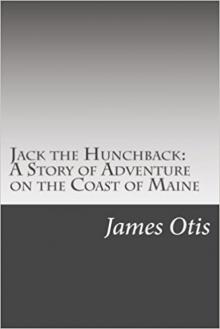 Jack the Hunchback: A Story of Adventure on the Coast of Maine
Jack the Hunchback: A Story of Adventure on the Coast of Maine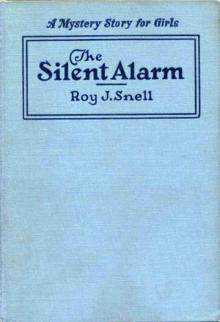 The Silent Alarm
The Silent Alarm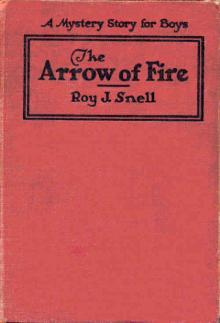 The Arrow of Fire
The Arrow of Fire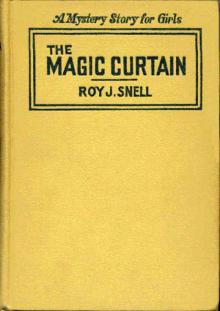 The Magic Curtain
The Magic Curtain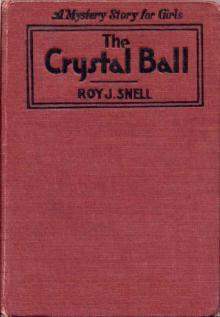 The Crystal Ball
The Crystal Ball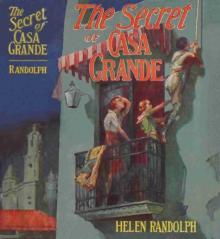 The Secret of Casa Grande
The Secret of Casa Grande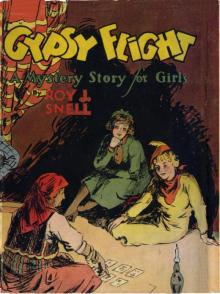 Gypsy Flight
Gypsy Flight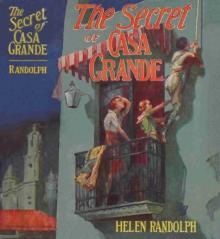 The Mystery of Carlitos
The Mystery of Carlitos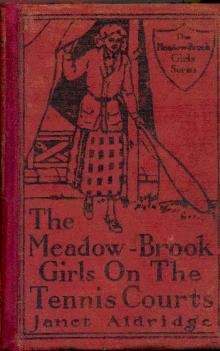 The Meadow-Brook Girls on the Tennis Courts; Or, Winning Out in the Big Tournament
The Meadow-Brook Girls on the Tennis Courts; Or, Winning Out in the Big Tournament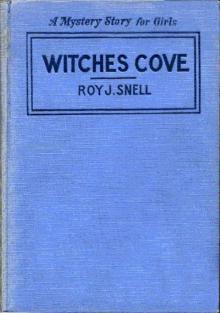 Witches Cove
Witches Cove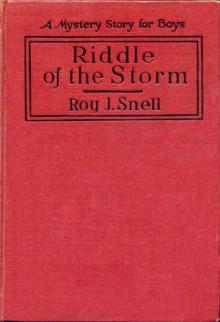 Riddle of the Storm
Riddle of the Storm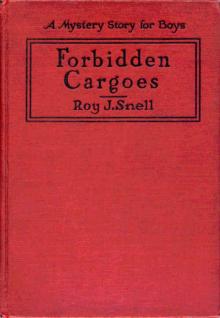 Forbidden Cargoes
Forbidden Cargoes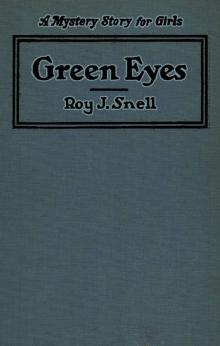 Green Eyes
Green Eyes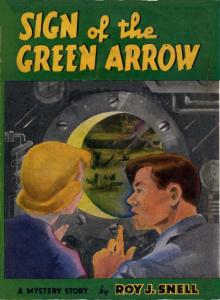 Sign of the Green Arrow
Sign of the Green Arrow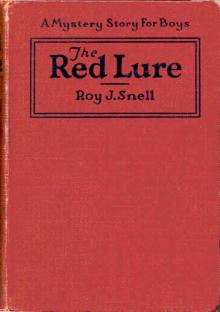 The Red Lure
The Red Lure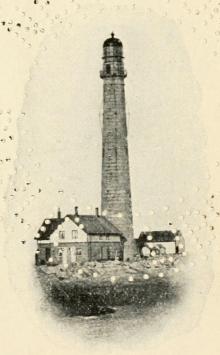 The Light Keepers: A Story of the United States Light-house Service
The Light Keepers: A Story of the United States Light-house Service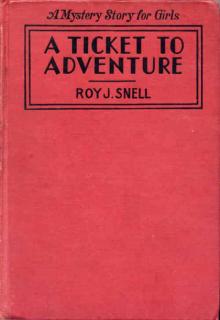 A Ticket to Adventure
A Ticket to Adventure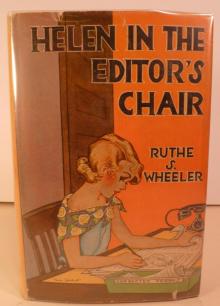 Helen in the Editor's Chair
Helen in the Editor's Chair Blue Envelope
Blue Envelope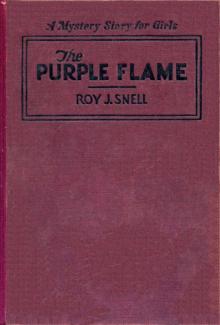 The Purple Flame
The Purple Flame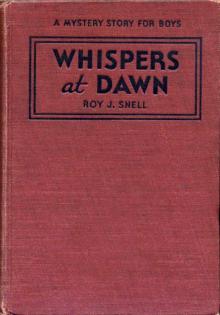 Whispers at Dawn; Or, The Eye
Whispers at Dawn; Or, The Eye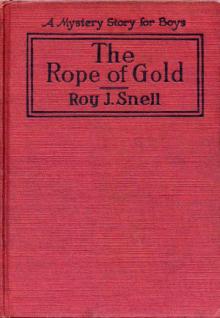 The Rope of Gold
The Rope of Gold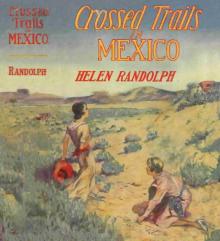 Crossed Trails in Mexico
Crossed Trails in Mexico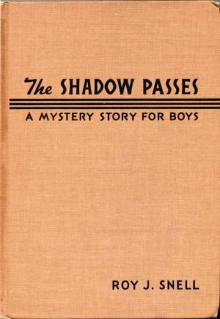 The Shadow Passes
The Shadow Passes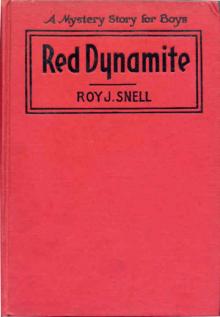 Red Dynamite
Red Dynamite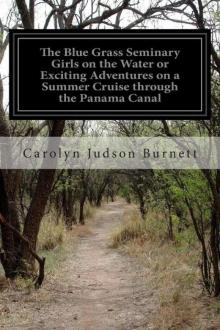 Blue Grass Seminary Girls on the Water
Blue Grass Seminary Girls on the Water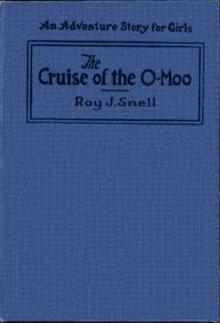 The Cruise of the O Moo
The Cruise of the O Moo